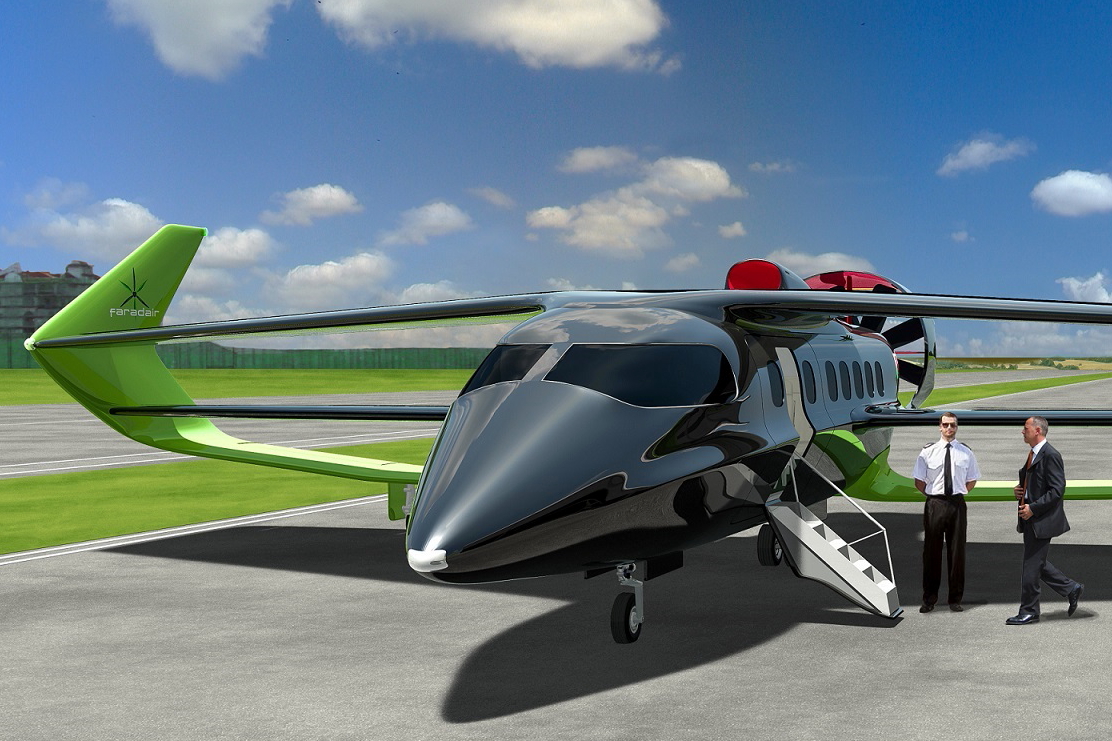|
(31 Oct 2021)
Faradair Aerospace has put together a powerful
consortium of partners to bring large scale aircraft
production to the UK.
The ambitious British start-up, headed by aviation
entrepreneur Neil Cloughley and based at the historic airfield at
IWM Duxford, Cambridgeshire, is aiming to deliver 300 of its new
Bio Electric Hybrid Aircraft (BEHA) by 2030.
Partners include Honeywell, magniX, Cambridge
Consultants and Nova Systems.

Faradair will work with Honeywell on the BEHA
turbogenerator, comprised of Honeywell�s gas turbine and generator
technologies, with the ability to run on sustainable aviation
fuel, to support the hybrid-electric aircraft design in addition
to other technologies, including avionics and flight control
systems.
magniX is regarded as a leading provider of
electric motors to the aviation industry and the BEHA will use two
magni500 e-motors and associated magniDrive control system
technology for flight propulsion.
Cambridge Consultants brings its vital R&D
engineering expertise in
hybrid propulsion architecture to the development of the BEHA�s
hybrid propulsion system, integrating the turbine and flight
e-motors.
Nova Systems will assist Faradair through
the early prototype development stages, reassuring certification
authorities that the aircraft is being developed and built to the
standards of existing and future regulations for sustainable
aviation technologies.
In line with UK Government ambitions for
sustainable air transport, the British designed and built BEHA
will emerge in hybrid electric/turbine configuration, but
engineered for evolution into a fully electric �net zero�
commercial aircraft when power generation technology delivers the
power density levels required for an 18-seat utility aircraft.
The ambition is to deliver an initial portfolio of
300 Faradair-owned BEHAs between 2026-2030, in the largest proof
of concept air mobility programme ever created. Of those, 150
aircraft will be built in firefighting configuration, 75 as quick
change (QC, passenger to cargo) aircraft, deployed at general
aviation airfields globally, and 50 as pure freighters. The final
25 aircraft will be demonstrated in non-civilian government roles,
including logistics, border and fisheries patrol, and drug
interdiction.
Commenting on these significant partnerships,
Cloughley said, �The
year 2020 has been an extremely tough year for aerospace and I am
delighted to be able to share this positive news today, not only
for the UK aerospace sector, but the sustainable aerospace sector
globally. We are honoured to announce our collaboration
with these leading organisations. Their input will enable us to
deliver the BEHA prototype by 2024 and subsequent Part 23
certification for operational trials from 2026. Gaining such
support validates our business model and capability of the BEHA.�
Talks are now advancing at pace with investors and
aircraft finance organisations to enable the full programme of
development to scale up and meet the target objectives. Meanwhile,
Faradair is building its executive and engineering team, and
expects to make further announcements early in 2021.
See latest
Travel Industry News,
Video
Interviews,
Podcasts
and other
news regarding:
COVID19,
Faradair,
Urban Mobility,
England,
UK.
|
Headlines: |
|
|
